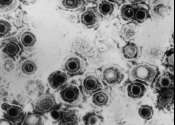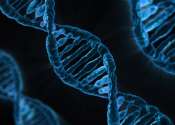Promise seen in possible treatment for autism spectrum disorder
Human chromosome 16p11.2 deletion syndrome is caused by the absence of about 27 genes on chromosome 16. This deletion is characterized by intellectual disability; impaired language, communication, and socialization skills; ...
Nov 1, 2017
0
2136









